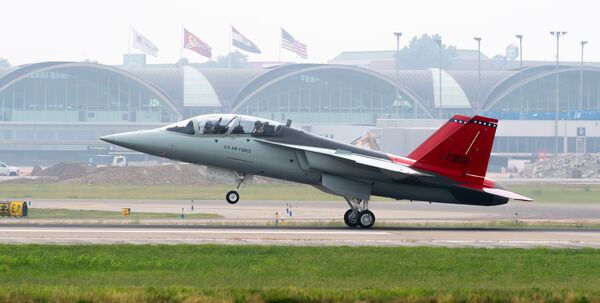
The first Boeing T-7A delivered to the USAF takes off from St Louis Lambert International Airport, Missouri. Challenges with the programme resulted in a charge to Boeing in Q3 2024. (Boeing/Eric Shindelbower)
Boeing continues to face headwinds as it works to address production and safety issues. A difficult third quarter included the effects of previously announced charges on commercial and defence programmes and the strike by the International Association of Machinists and Aerospace Workers (IAM), according to a Boeing statement on 23 October.
Kelly Ortberg, who took over as Boeing CEO in August, outlined four priorities to overcome these challenges while expressing confidence in the future. “We're clearly at a crossroads. The trust in our company has eroded, we're saddled with too much debt, we've had serious lapses in our performance across the company … but by the same token we have great opportunities ahead. Our company backlog is roughly half a trillion dollars,” he said.
He called for building a new culture, stabilising the business, and improving contract execution to lay the foundation for the future. This includes better integration from management to the factory floor. Ortberg touted a new, detailed business cadence to drive change.
A priority is ending the IAM strike and improving the relationship between workers and leadership, he said, noting that there will be challenges restarting the factories and supply chain once the work stoppage ends.
Boeing needs to improve processes for estimate at completion (EAC) and risk management, and act quickly when risks are discovered, he said. “This includes disciplined programme and risk management in all phases of the project, including the bid phase.” Management needs to be more focused on their programmes and actively working with their customers to anticipate risks before they occur, Ortberg continued.
Looking to read the full article?
Gain unlimited access to Janes news and more...







